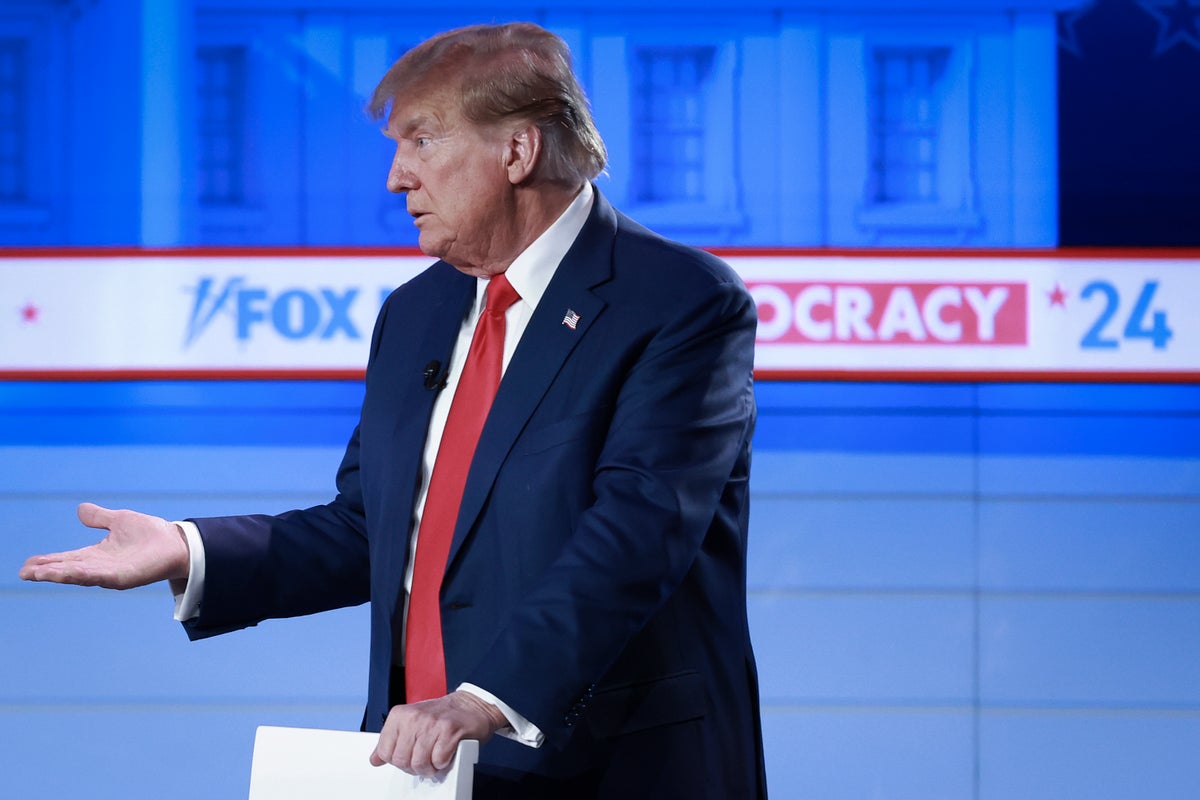
The presidential primary season will finally see its first votes cast on Monday 15 January when the Iowa caucuses are held.
All eyes will be on the race to secure the Republican nomination, with frontrunner Donald Trump expected to cement his commanding lead over his rivals in the polls as the likes of Nikki Haley, Ron DeSantis and Vivek Ramaswamy seek to make an impact and prove they have the support to mount a meaningful challenge.
For Democrats, the matter is much more straightforward: they will gather in gyms, schools, libraries and churches across the state’s 1,657 precincts (spread over 99 counties) to elect delegates to send to the county conventions in March, the next step to selecting the delegates that will attend the Democratic National Convention in Chicago in August.
Despite sub-zero temperatures and snow being forecast, the state Republican Party chair Jeff Kaufmann has insisted: “We have done everything humanly possible to ensure that this caucus comes off without a hitch.”
Mr Kaufmann has promised his organisation will have a live public-facing website up and running in time for caucus day carrying the results from each precinct as they come in, according to The Des Moines Register.
The results are expected to start rolling in from the smaller precincts around half an hour after the 7pm CST local start time, consultant Patrick Stewart told the newspaper, with the outcomes from larger precincts likely to take longer to count and arrive a few hours later. That means that we will not have a complete picture of how the candidates have done until well into the evening.
Volunteer precinct chairs will be required to enter the results for each candidate into an online system twice to ensure any counting errors are noticed before state party officials check over and approve each precinct’s results one by one before they are sent to the GOP website for public consumption.
Donald Trump takes part in a Fox News town hall event in Des Moines on Wednesday 10 January— (AP)
Mr Kaufmann insists his is “the most transparent process that you will find anywhere in the country”.
“The votes are counted in front of the room,” he added.
“Then the votes are reported in front of the room. And each candidate can have a representative watching them count it and report it in front of the room. Then the app or the call-in is done in front of the room.”
Mr Stewart was equally confident, telling the Register that only “a complete worldwide collapse of the internet” could cause a problem, explaining that the party would simply issue the results by press release if that were to happen.
If you are unfamiliar with the Iowa caucuses, they are a series of local meetings held throughout the state at which participants indicate their preference for the presidential nominee their party will place on November’s ballots.
Republican candidates Ron DeSantis and Nikki Haley participate in the Republican presidential debate hosted by CNN at Drake University in Des Moines, Iowa, on Wednesday 10 January— (Reuters)
They are distinct from primaries but are based on the same principle of consensus-building.
In a primary, voters can show up at polling stations and cast ballots throughout election day, from the early morning until the polls close in the evening.
They also have the option of casting an absentee ballot if they cannot make it and, in some states, people may be allowed to vote in advance.
The Iowa caucuses, however, are held in the evening and voters must attend in person to take part, except in a few isolated instances, which is why the bad weather is of such significance: it could deter voters from turning out.
The reason so much importance is placed on their outcome is because of the Hawkeye State’s first-in-the-nation placement in the campaign calendar, which means it has the potential to make-or-break this year’s Republican candidates even though the state makes up only a tiny share of the total number of GOP delegates nationwide (just 1.6 per cent).
Vivek Ramaswamy on the campaign trail— (Getty)
While that should mean that anyone who performs poorly in Iowa has plenty of opportunities in the remaining states and territories to make up the difference, the caucus results often give a disproportionate boost to the winners and a bounce to those who perform strongly or surpass expectations.
Conversely, it can have a demoralising effect on the rest of the field, possibly even nudging underperforming candidates out of the race for good.
So although Iowa is not particularly representative, demographically speaking, its caucuses are so crucial because they serve to signal to voters in other states, fairly or unfairly, which candidates are best placed in the race for the nomination and have momentum heading into the subsequent contests in New Hampshire, South Carolina, Nevada and so on.
Only registered Republicans may participate in the caucuses and only in their designated home precincts.
However, Iowans may register or change their party affiliation as late as caucus day itself, although voters must turn 18 by the November general election to participate.







